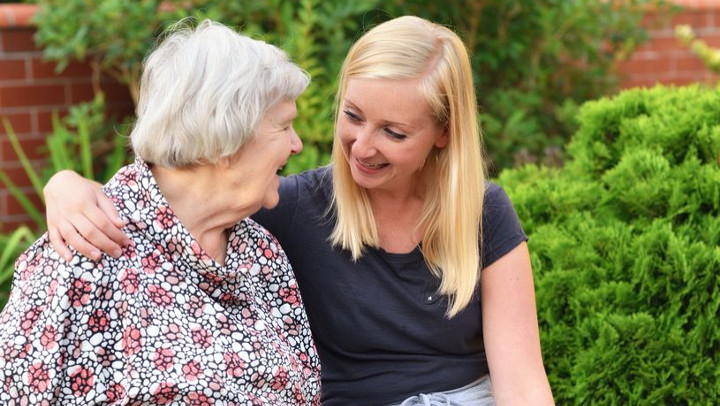
When a child or teen has a family member who is diagnosed with a dementia, such as Alzheimer’s disease, they will experience many of the same emotions that you, as an adult, feel. Often, however, their needs get overlooked as you, yourself, struggle to absorb the impact of the diagnosis. Then, when your attention returns to them, you may find them withdrawn and cut off emotionally. What to do?
We are often asked by families of our memory care residents how to make their children feel more comfortable and secure with a family member who has dementia. First, it’s important to be sensitive to their feelings. You can expect to see, depending on their age, one or more of the following:
Any of these emotional reactions can, if gone unrecognized, impact their schoolwork, friendships and even their physical health. That’s why it’s important to listen to your kids and encourage them to express their feelings. You can then offer support in the following ways:
Some children will adapt more readily than others. One way to help them adjust to this “new normal” is to gradually incorporate some activities that you can all do together.
Don’t hesitate to look outside your home for support. Consider attending local community events that educate families about Alzheimer’s disease and other dementias. Anthem’s Highline Place Memory Care, has developed KIDZ in the Dementia Zone, a special program to help children understand this challenging disease and better cope with it.
Most importantly, listen to your children. Let them take the lead. Give them time to work through the issues together with you. There will be good days and challenging ones ahead. Be there for them.